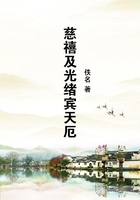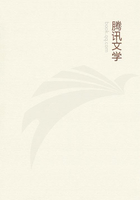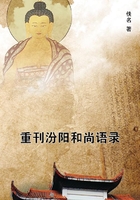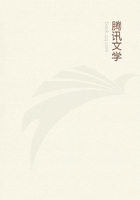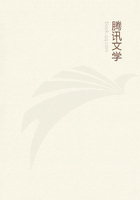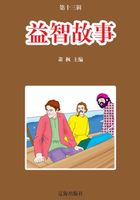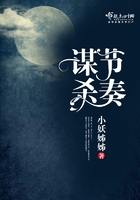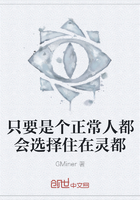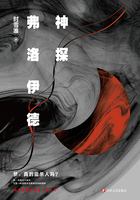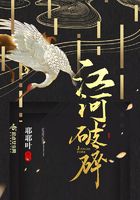A man of the world in the seventeenth century was utterly without a notion of those truths which in their ensemble constitute the natural sciences. He crossed the threshold of life possessed of a deep classical instruction, and all-imbued with stoical ideas of virtue. At the same time, he had received the mould of a strong but narrow Christian education, in which nothing figured save his relations with God. This twofold training elevated his soul and fortified his will, but wrenched him violently from all communion with Nature. This is the standpoint from which we must view the heroes of Corneille, if we would understand those extraordinary souls which, always at the highest degree of tension, deny themselves, as a weakness, everything that resembles tenderness or pity. Again, thus and thus alone can we explain how Descartes, and with him all the philosophers of his century, ran counter to all common sense, and refused to recognise that animals might possess a soul-like principle which, however remotely, might link them to the human being.
When, in the eighteenth century, minds became emancipated from the narrow restrictions of religious discipline, and when method was introduced into the study of scientific problems, Nature took her revenge as well in literature as in all other fields of human thought.
Rousseau it was who inaugurated the movement in France, and the whole of Europe followed in the wake of France. It may even be declared that the reaction against the seventeenth century was in many respects excessive, for the eighteenth century gave itself up to a species of sentimental debauch. It is none the less a fact that the author of /La Nouvelle Heloise/ was the first to blend the moral life of man with his exterior surroundings. He felt the savage beauty and grandeur of the mountains of Switzerland, the grace of the Savoy horizons, and the more familiar elegance of the Parisian suburbs. We may say that he opened the eye of humanity to the spectacle which the world offered it. In Germany, Lessing, Goethe, Hegel, Schelling have proclaimed him their master; while even in England, Byron, and George Eliot herself, have recognised all that they owed to him.
The first of Rosseau's disciples in France was Bernardin de St.
Pierre, whose name has frequently been recalled in connection with Loti. Indeed, the charming masterpiece of /Paul and Virginia/ was the first example of exoticism in literature; and thereby it excited the curiosity of our fathers at the same time that it dazzled them by the wealth and brilliancy of its descriptions.
Then came Chateaubriand; but Nature with him was not a mere background. He sought from it an accompaniment, in the musical sense of the term, to the movements of his soul; and being somewhat prone to melancholy, his taste seems to have favoured sombre landscapes, stormy and tragical. The entire romantic school was born from him, Victor Hugo and George Sand, Theophile Gautier who draws from the French tongue resources unequalled in wealth and colour, and even M. Zola himself, whose naturalism, after all, is but the last form and, as it were, the end of romanticism, since it would be difficult to discover in him any characteristic that did not exist, as a germ at least, in Balzac.
I have just said that Chateaubriand sought in Nature an accompaniment to the movements of his soul: this was the case with all the romanticists. We do not find Rene, Manfred, Indiana, living in the midst of a tranquil and monotonous Nature. The storms of heaven must respond to the storms of their soul; and it is a fact that all these great writers, Byron as well as Victor Hugo, have not so much contemplated and seen Nature as they have interpreted it through the medium of their own passions; and it is in this sense that the keen Amiel could justly remark that a landscape is a condition or a state of the soul.
M. Loti does not merely interpret a landscape; though perhaps, to begin with, he is unconscious of doing more. With him, the human being is a part of Nature, one of its very expressions, like animals and plants, mountain forms and sky tints. His characters are what they are only because they issue forth from the medium in which they live. They are truly creatures, and not gods inhabiting the earth. Hence their profound and striking reality.
Hence also one of the peculiar characteristics of Loti's workers. He loves to paint simple souls, hearts close to Nature, whose primitive passions are singularly similar to those of animals. He is happy in the isles of the Pacific or on the borders of Senegal; and when he shifts his scenes into old Europe it is never with men and women of the world that he entertains us.
What we call a man of the world is the same everywhere; he is moulded by the society of men, but Nature and the universe have no place in his life and thought. M. Paul Bourget's heroes might live without distinction in Newport or in Monte Carlo; they take root nowhere, but live in the large cities, in winter resorts and in drawing-rooms as transient visitors in temporary abiding-places.
Loti seeks his heroes and his heroines among those antique races of Europe which have survived all conquests, and which have preserved, with their native tongue, the individuality of their character. He met Ramuntcho in the Basque country, but dearer than all to him is Brittany: here it was that he met his Iceland fishermen.

